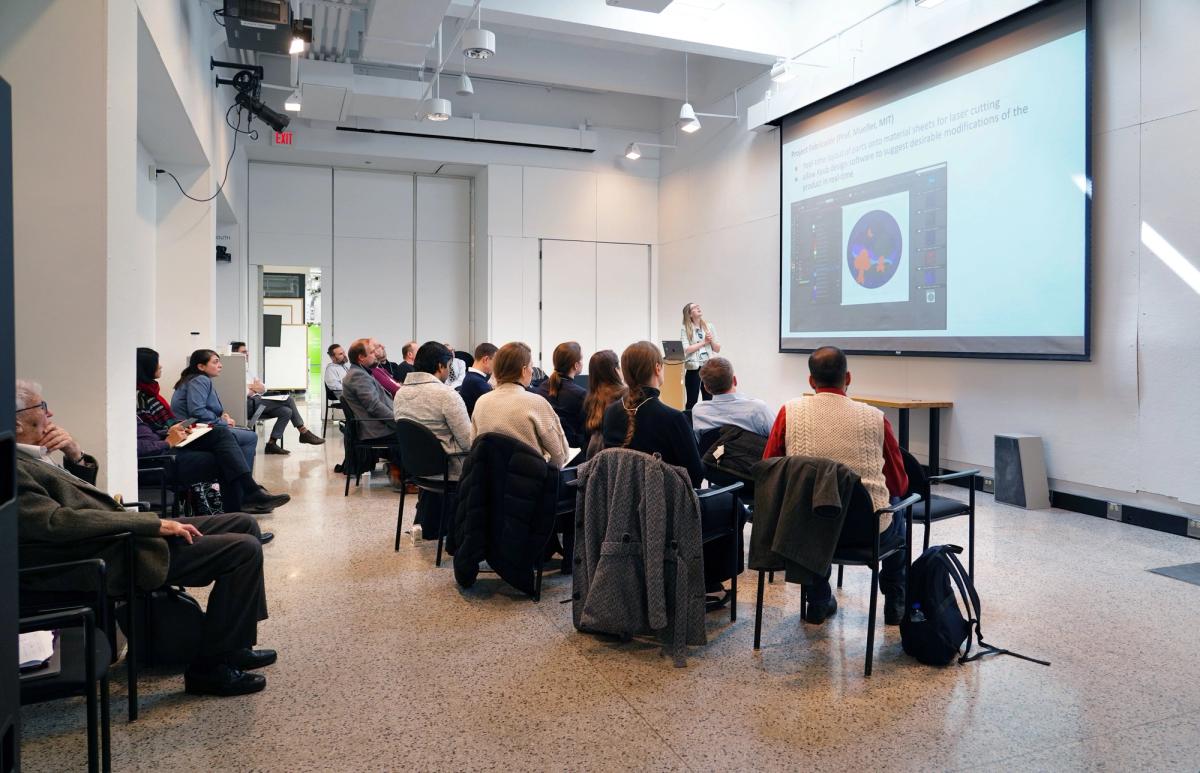Research
In 2022, MIT MAD and the Hasso Plattner Institute (HPI) co-created “Designing for Sustainability.” This program, funded by the Hasso Plattner Foundation, is a multi-year partnership to drive joint scientific design research in multidisciplinary teams at both institutes. It focuses on sustainable design, innovation, and digital technologies, through the allocation of approximately ten grants of up to $200,000 per year.
Creative collaboration across spatial, temporal, and cultural boundaries is central to design. The program's vision is to develop ambitious, long-term explorations related to the innovation strategies of design, to generate sustainable impact for society across various domains of practice. Design research teams with divergent backgrounds in computer science, AI, machine learning, engineering, planning, architecture, natural sciences, humanities, business and management are encouraged to apply.
We are thrilled to collaborate with HPI to apply the power of design to sustainability and digital technologies. By working together, the research talents of HPI and MIT can accelerate design innovations for a low-carbon economy.
— John Ochsendorf, founding director of the MIT Morningside Academy for Design
Alongside artificial intelligence, design research is a key driver for innovation in sustainability.
— Ralf Herbrich, managing director and professor at HPI, Chair for Artificial Intelligence and Sustainability

HPI–MIT Designing for Sustainability Workshop
2025-26 Application is closed
See the application page for details about the program components and eligibility.
Open to MIT and HPI Principal Investigators
Projects
Personalizing Product Design with Minimal Material Waste
Securing the Global Supply Chain
Generative Models for Synthetic Phage Therapeutics
Sidewalk Ballet: A scalable urban analytic approach for explaining social qualities of urban streets
Predicting Functional Effects of Genetic Variants
2D Magnetic Material for Sustainable AI
AI-Powered Startup Design for the Anthropocene
AI-Enabled Design of Electroactive Surfaces for Sustainable Cell Culture
Improving Human–AI System Sustainability in Health Via Aligned Relevance and Evaluation
Rethinking the Product Design Process of 3D-Printed Objects with Recycled Materials
AI-empowered Architect: Connecting Creativity with Efficiency for Sustainable Structures Design
Designing Interpretability Methods to Decode Deep Learning Models for Protein Fitness Prediction
Predicting Problematic Phone Use: Contextual and Physiological Indicators for Early Detection
AI for the Design of Regulatory DNA-elements in Cancer
Developing Whiteboard-Literate AI for Equitable and Accessible Education
The Design of Sustainable Academic Entrepreneurship Ecosystems for AI-Driven Venture Success
